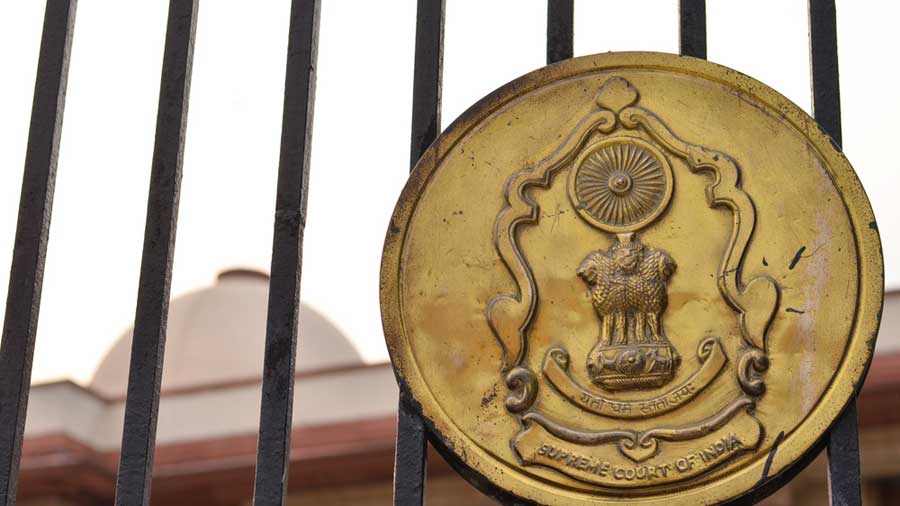The Supreme Court on Wednesday granted four weeks to the Centre and states to come out with details of vacancies of information commissioners amid complaints that governments across the country are seeking to dilute the transparency law by the keeping the posts vacant.
The bench of Justices Abdul Nazeer and Krishna Murari asked additional solicitor-general Madhavi Divan appearing for the Centre to place on record the updated status report on vacancies in the Central Information Commission (CIC) and State Information Commissions (SIC).
The court was hearing a joint PIL filed by RTI activists Anjali Bharadwaj, Col Lokesh Batra and Amrita Johri complaining about the large-scale vacancies resulting in a massive backlog of cases.
Appearing for the petitioners, advocate Prashant Bhushan accused the Centre of conducting the appointment process in an opaque manner so that even the leader of the Opposition, who is part of the selection committee headed by the Prime Minister, is not given any details on the criteria for short-listing the names.
Bhushan said the vacancies were not confined to the CIC alone but also affected the State Information Commissions of Maharashtra, Odisha, Karnataka and Bengal.
Bhushan submitted that despite repeated observations and directions from the apex court against filling up the posts with bureaucrats, the Union government had not made the selection process transparent till date.
“They have not placed either the names of the candidates or the selection criteria on record. More than 300 people applied, but they short-listed only seven persons without specifying the criteria for short-listing the names,” he said.
According to Bhushan, the Centre was keen on keeping the posts either vacant or filling them up with “party supporters”, thereby destroying the very purpose of the transparency law.
The bench had initially granted six weeks to the Centre and states to file their affidavits, but modified the order to four weeks on Bhushan’s insistence.
The three activists had in October last year sought an urgent direction to the Centre to fill up the six vacancies in the CIC on account of which over 36,000 complaints/appeals under the Right to Information Act were pending adjudication.
It was alleged that the Centre was not taking the necessary steps to fill up the vacancies to frustrate the laudable objective of the RTI Act.
It was submitted that out of the sanctioned 11 posts in the CIC, which includes the chief commissioner, only five posts have been filled up. The overall vacancies are pending for the past two years.
“Six posts, including that of Chief Commissioner, is vacant as on 15.10.2020: With the retirement of the chief on 26.8.2020 and another commissioner demitting office in the end of September, 2020, currently six posts, including that of the chief are lying vacant and the pendency of appeals/complaints has risen to over 36,600,” the application stated.
According to the petitioners, the apex court’s December 16, 2019, order for filling up all the vacancies had not been complied with.
“It is further submitted that it appears the UOI (Union of India) is resorting to issuing fresh advertisements instead of filling up all the advertised vacant posts in a bid to cause undue delay in the appointments thereby frustrating people’s right to information,” the application said.
It also alleged that the Union government’s affidavit dated April 24, 2020, had falsely claimed that the December 16, 2019, directive of the apex court to fill up all the vacant posts within three months had been complied with.
“Even though the respondent UOI failed to comply with the directions dated 16.12.2019 of this Hon’ble Court to complete the appointment process in respect of Information Commissioners in CIC within a period of three months, vide affidavit dated 24.4.2020, the UOI has claimed that ‘the process of appointment in response of Information Commissioners in Central Information Commission has been completed within three months as directed by this Hon’ble Court in its Order dated 16.12.2019.’
“It is submitted that this assertion is patently false and misleading as the respondent was to fill all the vacancies which were advertised on 12.12.2019 and not merely appoint one information commissioner and a Chief. The affidavit notes that 250 applications were received pursuant to the advertisement for 4 posts of information commissioners. However, no reason is given as to why only one vacant post was filled, instead of filling all 4. As of 24.4.2020, the number of vacancies in the CIC persisted at 4,” the application stated.











